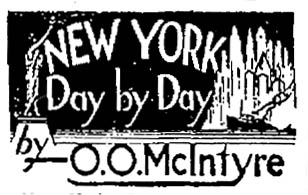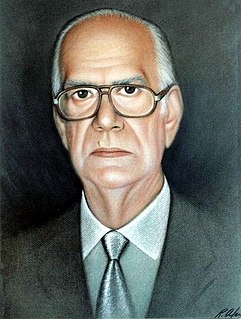Life
Begins philosophy studies in the Universidad de Oviedo, where, "after feeling like Oscar Wilde in prison", and telling himself a certain quote by Francois Mauriac -"Freedom and health are the same thing"- he soon leaves everything for the sake of his cyclopean literary vocation. "Perpetual writer, always writer", he is the heir of a tradition that combines decadence and culture in the same identity: Jean Lorrain, Charles Baudelaire, Max Jacob, Arthur Rimbaud, Emile Cioran, Louis Aragon, Louis-Ferdinand Celine, Georges Bataille among others.

Philosophy is the study of general and fundamental problems concerning matters such as existence, knowledge, values, reason, mind, and language. The term was probably coined by Pythagoras. Philosophical methods include questioning, critical discussion, rational argument, and systematic presentation. Classic philosophical questions include: Is it possible to know anything and to prove it? What is most real? Philosophers also pose more practical and concrete questions such as: Is there a best way to live? Is it better to be just or unjust? Do humans have free will?
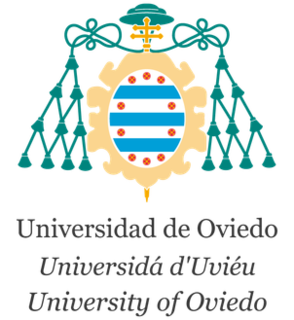
The University of Oviedo is a public university in Asturias (Spain). It is the only university in the region. It has three campus and research centres, located in Oviedo, Gijón and Mieres.

Oscar Fingal O'Flahertie Wills Wilde was an Irish poet and playwright. After writing in different forms throughout the 1880s, he became one of London's most popular playwrights in the early 1890s. He is best remembered for his epigrams and plays, his novel The Picture of Dorian Gray, and the circumstances of his criminal conviction for homosexuality, imprisonment, and early death at age 46.
He steps into the world of literature with the book: Los héroes inutiles (The Useless Heroes) (Ellago Ediciones, 2005), a complete collection of the correspondence that he held with Spanish "damned" writer Leopoldo María Panero, that serves as a literary poetic where the author, following two well-known sentences by Charles Baudelaire, declares himself "hero" and "useless". His first poetry book, also published in 2005: El hombre entre las rocas (The Man Among the Rocks) (Arena Libros) is a sort of writing notebook in which he entwines the poetic with the narrative in a same coherent unity, similar to Jean Cocteau or René Char, where the former (poetic) is always destined to triumph over the latter (narrative).

Spain, officially the Kingdom of Spain, is a country mostly located in Europe. Its continental European territory is situated on the Iberian Peninsula. Its territory also includes two archipelagoes: the Canary Islands off the coast of Africa, and the Balearic Islands in the Mediterranean Sea. The African enclaves of Ceuta, Melilla, and Peñón de Vélez de la Gomera make Spain the only European country to have a physical border with an African country (Morocco). Several small islands in the Alboran Sea are also part of Spanish territory. The country's mainland is bordered to the south and east by the Mediterranean Sea except for a small land boundary with Gibraltar; to the north and northeast by France, Andorra, and the Bay of Biscay; and to the west and northwest by Portugal and the Atlantic Ocean.
Leopoldo María Panero was a Spanish poet, commonly placed in the Novísimos group. Panero is the archetype of a decadence as much cultivated as repudiated, but that decadence has not stopped him from being the first member of his generation in being incorporated to the classic Spanish editorial Cátedra, to have a splendid biography written by J. Benito Fernández and being included in the literary history, anthologies and academical programs.
Poetics is the theory of literary forms and literary discourse. It may refer specifically to the theory of poetry, although some speakers use the term so broadly as to denote the concept of "theory" itself.
He publishes his first novel El clítoris de Camille (Camille's Clitoris) (Seix Barral) in early 2006, a transgressive novel that is practically impossible to label or classify. This novel was surrounded in controversy for constituting the solid monologue of a decadent mentally ill writer facing a love process, a surprising novel, tinged by the use of a most peculiar and deconstructive syntax and a not less provoking language. Also in 2006, he published a book of micro-stories, Los sueños diurnos. Manual para amantes, pobres y asesinos (Daylight Dreams. Instructions for lovers, beggars and murderers) (Cahoba Narrativa) which is the sum of over three-hundred micro-stories and over six-hundred characters, filled with quotes and "illuminations", where he followed the composition processes of Robert Walser and his Mikrogramme (Micrograms).
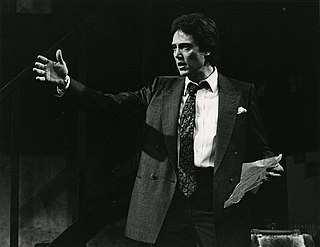
In theatre, a monologue is a speech presented by a single character, most often to express their mental thoughts aloud, though sometimes also to directly address another character or the audience. Monologues are common across the range of dramatic media, as well as in non-dramatic media such as poetry. Monologues share much in common with several other literary devices including soliloquies, apostrophes, and asides. There are, however, distinctions between each of these devices.
In linguistics, syntax is the set of rules, principles, and processes that govern the structure of sentences in a given language, usually including word order. The term syntax is also used to refer to the study of such principles and processes. The goal of many syntacticians is to discover the syntactic rules common to all languages.

Robert Walser was a German-speaking Swiss writer.
In 2007, with La soledad no tiene edad (Loneliness Has No Age) (Septem), Diego Medrano combines extensive and short stories, the titles of which should give an accurate orientation: Bragas (Panties), Nembutal , Urinarios (Urinals), Mahou, Atapuerca , Sirenas (Sirens)... 272 pages for readers ready for everything. In 2008, Medrano returns with the poetry book Agua me falta (Got No Water) (Septem).
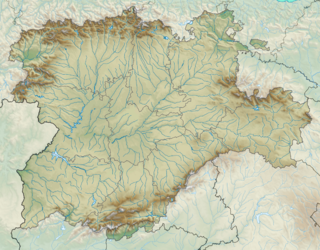
The Atapuerca Mountains is a karstic hill formation near the village of Atapuerca in Castile and León, northern Spain. In a still ongoing excavation campaign, rich fossil deposits and stone tool assemblages were discovered which are attributed to the earliest known hominin residents in Western Europe. This "exceptional reserve of data" has been deposited during extensive Lower Paleolithic presence, as the Atapuerca Mountains served as the preferred occupation site of Homo erectus, Homo antecessor, Homo heidelbergensis and Homo neanderthalensis communities. The earliest specimen so far unearthed and reliably dated confirm an age between 1.2 Million and 630,000 years. Some finds are exhibited in the nearby Museum of Human Evolution. The site was designated a UNESCO World Heritage Site, under the name, Archaeological Site of Atapuerca.
The first volume of his diaries, Diario del artista echado a perder (Diary Of The Wasted Artist), constitutes a convulse "Dictionary of the lousy" -dozens and dozens of "damned" and "cursed" artists- with the author's own life, no less heterodox or singular.
He also published other poetry books such as: El viento muerde (The Wind Bites) and A veces cuerdo (Sometimes Sane).

Publius Ovidius Naso, known as Ovid in the English-speaking world, was a Roman poet who lived during the reign of Augustus. He was a contemporary of the older Virgil and Horace, with whom he is often ranked as one of the three canonical poets of Latin literature. The Imperial scholar Quintilian considered him the last of the Latin love elegists. He enjoyed enormous popularity, but, in one of the mysteries of literary history, was sent by Augustus into exile in a remote province on the Black Sea, where he remained until his death. Ovid himself attributes his exile to carmen et error, "a poem and a mistake", but his discretion in discussing the causes has resulted in much speculation among scholars.

Literary criticism is the study, evaluation, and interpretation of literature. Modern literary criticism is often influenced by literary theory, which is the philosophical discussion of literature's goals and methods. Though the two activities are closely related, literary critics are not always, and have not always been, theorists.

Roland Gérard Barthes was a French literary theorist, philosopher, critic, and semiotician. Barthes' ideas explored a diverse range of fields and he influenced the development of many schools of theory, including structuralism, semiotics, social theory, design theory, anthropology, and post-structuralism.

Michael Palmer is an American poet and translator. He attended Harvard University where he earned a BA in French and an MA in Comparative Literature. He has worked extensively with Contemporary dance for over thirty years and has collaborated with many composers and visual artists. Palmer has lived in San Francisco since 1969.
"The Death of the Author" is a 1967 essay by the French literary critic and theorist Roland Barthes (1915–80). Barthes' essay argues against traditional literary criticism's practice of incorporating the intentions and biographical context of an author in an interpretation of a text, and instead argues that writing and creator are unrelated. The title is a reference to Le Morte d'Arthur, a 15th-century compilation of smaller Arthurian legend stories, written by Sir Thomas Malory.
Ars Poetica, or "The Art of Poetry", is a poem written by Horace c. 19 BC, in which he advises poets on the art of writing poetry and drama. The Ars Poetica has "exercised a great influence in later ages on European literature, notably on French drama" and has inspired poets and authors since it was written. Although it had been familiar since the Middle Ages, it is used in literary criticism since the Renaissance.

Lewis P. Turco, is an American poet, teacher, and writer of fiction and non-fiction. Turco is an advocate for Formalist poetry in the United States.
French poetry is a category of French literature. It may include Francophone poetry composed outside France and poetry written in other languages of France.

Experimental literature refers to written work—usually fiction or poetry—that emphasizes innovation, most especially in technique.
Aaron Shurin is an American poet, essayist, and educator. Since 1999, he has co-directed the Master of Fine Arts in Writing Program at the University of San Francisco.

Mohammed Bennis in Arabic محمد بنيس is a Moroccan poet and one of the most prominent writers of modern Arabic poetry. Since the 1970s, he has enjoyed a particular status within Arab culture. Muhsin J al-Musawi states that "Bennis’ articulations tend to validate his poetry in the first place, to encapsulate the overlapping and contestation of genres in a dialectic, that takes into account power politics whose tropes are special. As a discursive threshold between Arab East and the Moroccan West, tradition and modernity, and also a site of contestation and configuration, Muhammad Bennis' self-justifications may reveal another poetic predilection, too."
Antonio Martínez Sarrión is a Spanish poet and translator.
The Mission: Memory of a Revolution, also known as The Task, is a postmodern drama by the German playwright Heiner Müller. The play was written and first published in 1979. Müller and his wife Ginka Cholakova co-directed its first theatrical production in 1980, at the intimate 'Theatre im 3.Stock' studio space of the Volksbühne in Berlin. Müller also directed a full-house production in 1982 at the Bochum Theatre in West Germany.

Iraiyaṉār Akapporuḷ, or Kaḷaviyal eṉṟa Iraiyaṉār Akapporuḷ, literally "Iraiyanar's treatise on the love-theme, called 'The study of stolen love'" is an early mediaeval work on Tamil poetics, specifically, on the literary conventions associated with the akam tradition of Tamil love poetry. The date of the work is uncertain, but it is generally taken to have been composed between the fifth and eighth centuries.
Maria Takolander, born in Melbourne in 1973, is an Australian writer. She is an Associate Professor in Creative Writing and Literary Studies at Deakin University, Geelong, Victoria.
Empire of Dreams is a postmodern book of poetry by Giannina Braschi, who is widely considered "one of the most revolutionary voices in Latin American literature today". In 1988, Empire of Dreams debuted in Spain to acclaim as El imperio de los sueños, with an English translation by Tess O'Dwyer later inaugurating the Yale Library of World Literature in Translation (1994). Composed from 1980 to 1986, this series represents the first major phase of Braschi's oeuvre: poetry written entirely in classical and modern Spanish.
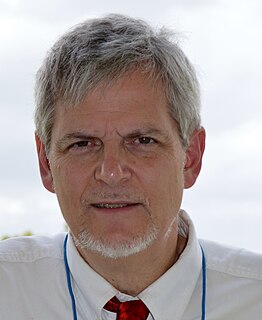
John Gery is an American poet, critic, collaborative translator, and editor. He has published seven books of poetry, a critical work on the treatment of nuclear annihilation in American poetry, two co-edited volumes of literary criticism and two co-edited anthologies of contemporary poetry, as well as, a co-authored biography and guidebook on Ezra Pound's Venice.

Ali Babachahi is an Iranian poet, writer, researcher, and literary critic.

